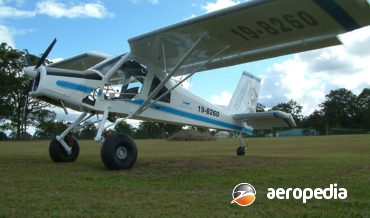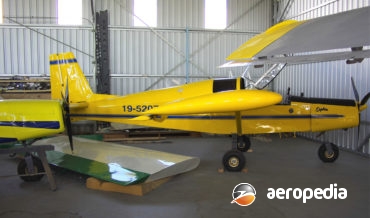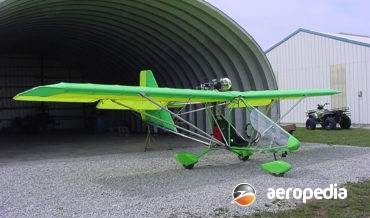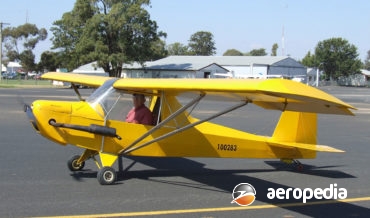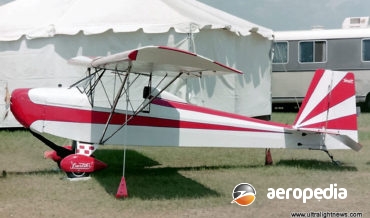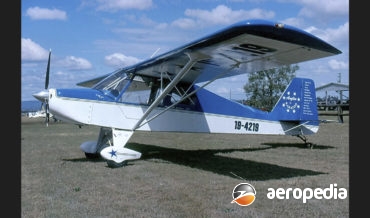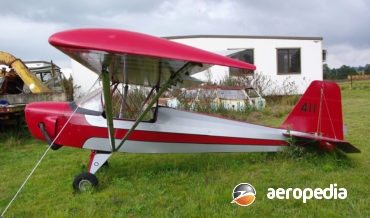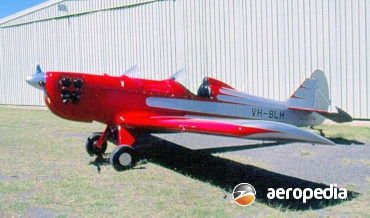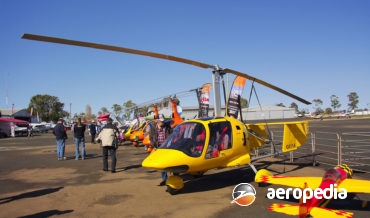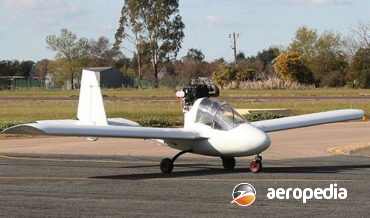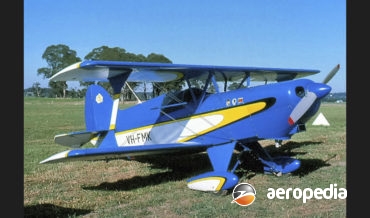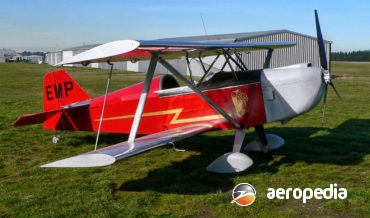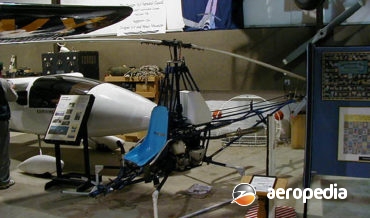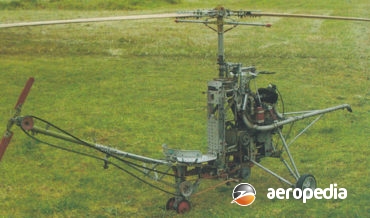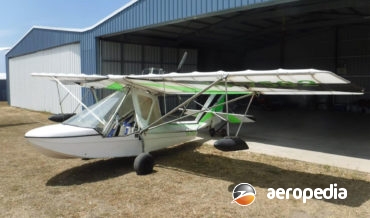David C. Eyre
The aircraft was designed to meet Regulation 95-10, being a two-seater in tandem with an open cockpit or enclosed cockpit, as the customer wishes, but with the same responsive controls and handling of the larger aircraft. The cargo area can be used for a jump seat.
David C. Eyre
- May 8, 2019
The Wasp GT was designed by Ole Hartmann and introduced to the Australian Aircraft Kits range of amateur-built light aircraft early in the 21st century, the kits being available to purchasers from the company’s facility at Laurieton, NSW.
David C. Eyre
- May 8, 2019
The Aerolite light aircraft series was constructed and marketed in the early 1990s by Australian Aviation Works of Donvale, VIC, the prototype being placed on display at the Australian International Airshow at Avalon.
David C. Eyre
- May 8, 2019
The J-3 Kitten was one of a series of light aircraft produced by AAW [Australian Aircraft Works] at Donvale, VIC, under licence from the Anglin Aircraft Company in the US, being a high-wing strut braced monoplane of conventional light aircraft appearance, the other designs being the J-4 Sportster, the J-5
David C. Eyre
- May 8, 2019
The J-4 Sportster was designed by Jessie Anglin in the United States and produced by the Anglin Aircraft Company, making its first flight in 1986.
David C. Eyre
- May 8, 2019
The J6 Karatoo is one of a range of ultra-light aircraft imported by the Australian Aircraft Works [AAW] of Donvale, VIC from Grover Aircraft in Hendersonville, North Carolina, USA.
David C. Eyre
- May 8, 2019
Australian Aircraft Works of Donvale, VIC has been involved in the construction of ultra-light aircraft in kit form for some years.
David C. Eyre
- May 8, 2019
The Spacewalker II (also known as the Revolution II) is produced by Warner Aerocraft Company in Seminole in Florida in kit form for amateur construction.
David C. Eyre
- May 8, 2019
The Xenon was developed in France in 2005 and is a factory built and delivered fully-assembled gyrocopter produced by ABS Aerolight in France with a variety of Rotax aircraft engines.
David C. Eyre
- May 8, 2019
The Stingray was a mid-wing fully cantilevered light sporting aircraft with a pylon mounted pusher engine designed by Mr Raymond Tolhurst and built in some numbers at the Camden facility of Composite Engineering in the 1980s.
David C. Eyre
- May 8, 2019
The Acro Sport was designed by the late Mr Paul Poberezny, President of the Experimental Aircraft Association of America, specifically for construction by persons with no experience in building aircraft.
David C. Eyre
- May 8, 2019
In 1985 the Aircraft Spruce and Specialty Company sponsored the design and construction of a light aircraft, the goal being to develop a new homebuilt aircraft that could be easily constructed from plans and / or building instructions and using commonly available materials.
David C. Eyre
- May 8, 2019
In the 1950s Messrs T G Adams and Paul Wilson in California designed and developed a single-seat light sporting helicopter for private use. After a prototype was completed and tested, they produced plans for construction of the machine, then known as the Adams Wilson Hobbycopter, for sale to amateur constructors.
David C. Eyre
- May 8, 2019
This light single-seat helicopter was built in the Melbourne suburb of Black Rock and is believed to have been completed in about 1948. It took about two-years to complete and is thought to be, if not the first, one of the first helicopters designed and built in Australia.
David C. Eyre
- May 8, 2019
Over the years the Buccaneer has been produced by a number of companies and in a variety of models, one name being given to it at one stage being the Mallard. It is a single or two-seat light amphibian with an engine in the pusher configuration and has been marketed
David C. Eyre
- May 8, 2019
Recent Comments
Archives
Categories
- No categories
Categories
- No categories
Latest Posts
Newsletter

